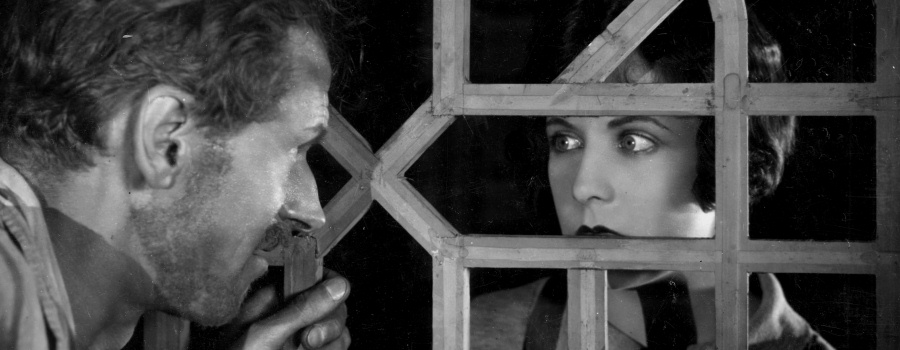A Year with Hitchcock: The Pleasure Garden, by Reed Lackey
11 Jan
Hitchcock began his career in films designing title cards for the London branch of Paramount Pictures. He eventually worked his way up to assistant director and ultimately, of course, to director. The very first directorial effort by Hitchcock was a film called Number 13, but a production cancellation midway through due to financial difficulties caused the film to remain incomplete and what little there was of it has been lost to time.
I half expected The Pleasure Garden, the earliest surviving directorial effort from Hitchcock, to be flat and uninteresting. On the contrary, I rather enjoyed it.
Its narrative is a simple romantic drama playing with the fickle nature of infatuations. The plot is similar to a variety of much more recent romantic comedies, where pairs of lovers intersect and the cheaters ultimately never prosper. The story begins when Jill, an aspiring young dancer, arrives at the Pleasure Garden Theatre in London with a note for the theatre’s owner. However, within moments, both the note and all of her funds are stolen from her. Taking pity on her, a beloved chorus girl named Patsy offers her lodging and a chance to try to obtain a job, which Jill eventually does. Jill’s fiancee Hugh arrives (accompanied by a friend named Levet, who becomes rather quickly infatuated with Patsy) but Jill has become enthralled with the life of celebrity and the pursuit of wealth and influence.
The story quickly evolves into a love triangle involving Levet and Patsy (who are eventually married) and Hugh, who loves Patsy and is being cast off by Jill. The narrative takes us to Africa, where Levet and Hugh are both sent by their company. The ensuing plot devolves into romantic treachery, including an affair and a murder (as well as a minor ghost story). But without spoiling too many of the particulars, all ends as well as it probably should.
The Pleasure Garden is by no means standard Alfred Hitchcock fare, and being an early entry this is understandable. But there are noteworthy Hitchcock elements here, namely dark humor and wry wit. There’s also a proper murder, though that wrinkle shows up pretty late to the party. And this film also marks one of the very few times (if not the only time) where the inherently supernatural breaks into the story (although the ghost could conceivably be explained away as a manifestation of a guilty conscience).
Ultimately, I found the film to be charming — far more charming, in fact, than I ever expected it to be. I’m certain that as I move through Hitch’s filmography, there will be much more entertaining pieces. Here, we have merely the seeds of what would eventually become towering masterpieces.
Producer Michael Balcon agreed that there was tremendous potential in Hitchcok, providing him with the chance to direct another film: The Mountain Eagle. The Mountain Eagle remains lost and, according to Hitchcock, that’s the preferred result. He called it a “very bad film.”
Although The Pleasure Garden still barely ranks among those films for Hitchcock completists only, at the very least we can say that as far as starting points go, it’s not half bad.
Summary:
Accessibility – Difficult to find
Themes – Romantic Entanglements, the Price of Fame, Murder
Category – For Completists Only


2 Responses to “A Year with Hitchcock: The Pleasure Garden, by Reed Lackey”